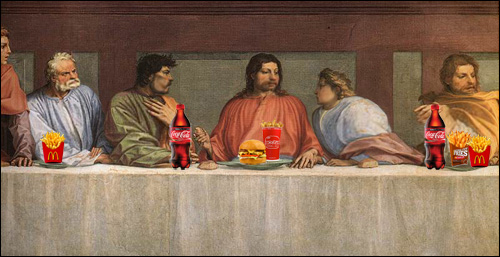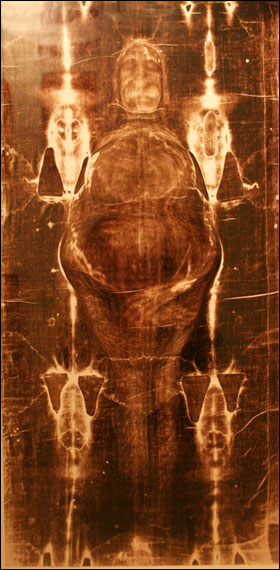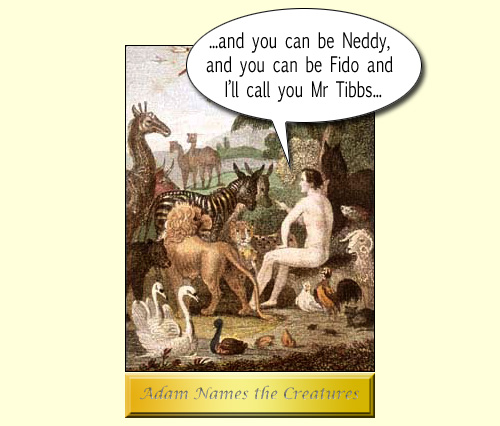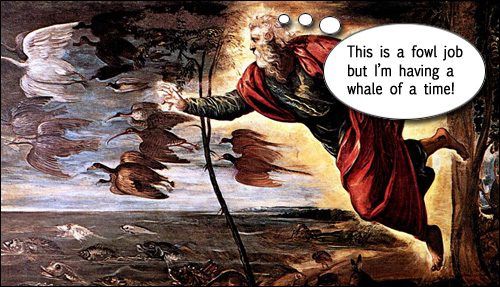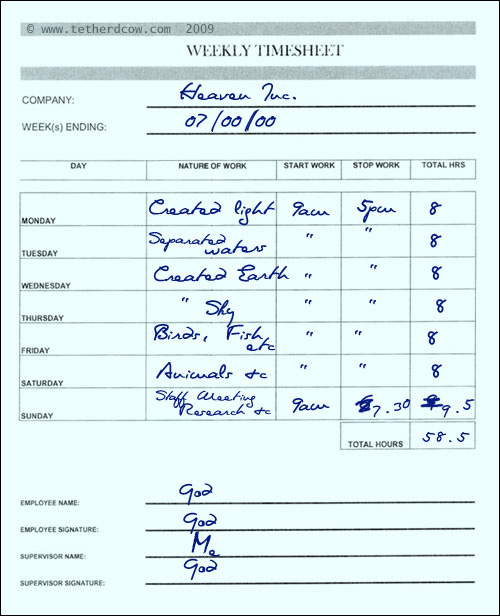
Being as I am an atheist, one of the things that peeves me about religion is the idea held by many that without it we’d somehow be completely incapable of navigating the complex moral issues of human existence. Religions would like everyone to believe that they have the answers to all the big moral problems, and claim to have the final word on how we should live our lives. Of course, in the Christian religion, the Mac Daddy of religious moral imprimatur is, without question, the Ten Commandments.
Today on The Cow I thought we might scrutinize the Big 10 and their heritage. Anyone with a Sunday Schooled childhood will know that the story of the Ten Commandments is outlined in Exodus, so it is here that we open our Bibles in order to find out the real nitty gritty behind what Moses brought down with him from Mt Sinai on those big stone tablets. I suggest that it might go a little differently from what most people might think…
To set the scene: The Israelites are fleeing from Egypt under the guidance of Moses. They have been travelling for three months ((To the very day! as the Bible gleefully exclaims, as if to make a point of its superb timekeeping abilities. This is something that is noticeably absent about, oh, EVERYWHERE else…)) when they arrive at Mount Sinai. After laborious admonishments from God that he should come alone, Moses heads on up the mountain to take receipt of the Ten Commandments that we all know and love:
1. You shall have no other Gods before me.
2. You shall not worship idols. (This is pretty much just a variation on #1) ((In the King James version, which is not neatified like some of the more modern renderings of the Bible, God makes no bones about issuing a threat along with this: “… for I the LORD thy God am a jealous God, visiting the iniquity of the fathers upon the children unto the third and fourth generation of them that hate me”. God is jealous? How sad to believe that an all-knowing being is unable to rise above the petty human foible of jealousy!))
3. You shall not take My Name in vain. (So’s this)
4. You shall keep the Sabbath day holy. (And this is just a sub-clause of 2&3, by any sensible reckoning)
5. You shall honour your mother and father.
6. You shall not murder.
7. You shall not commit adultery
8. You shall not steal.
9. You shall not bear false witness against your neighbour.
10. You shall not covet they neighbour’s house/wife/manservant/maidservant/ox/donkey/XBox etc. (God is nothing if not circumlocutious. He could have simply said “You shall not covet anything that your neighbour owns”. Maybe he feels he has to spell it out for the really stupid – after all, they must number a fair percentage of his followers)
OK. So that about wraps it up and we can trundle off down the mountain with our slab of stone, and our moral certitude intact, right? ((I just want to bring up something here: how is it, with 2000+ years of guidance from God in their pockets, Christians still transgress the above rules in numbers equal to, or perhaps even greater than, the rest of the population. Are we to think that without these guidelines these people would be even worse? Or is it just that religion provides a convenient excuse for not taking any personal responsibility?)) Oh no, not on your nellie. Now that God’s got the soapbox there’s just a few teensy other things he wants to add…
11. You shall set your Hebrew servant free after six years. Except if he doesn’t want to go, in which case his ear will be pierced with an awl. (It is pretty obvious already that the end of #10 was always going to be a good place for an edit, isn’t it?)
12. You shall not let your daughter go free if you have previously sold her as a servant. Conditions apply. (I’m abbreviating for the sake of sanity. Pretty much all these further Commandments are long-winded and full of caveats)
13. Anyone who strikes someone else shall be put to death. Unless it’s an accident, in which case I/God will decide on a place to send him. (God persists in talking in both the first and third person throughout Exodus. It is really quite irritating. I suppose it’s something to do with him being a Holy Trinity and all that, but you’d think that an omnipotent being would have a better grasp of grammar and language structure).
14. Anyone who attacks his father or mother should be put to death. (No exceptions for accidents here, evidently)
15. Anyone who kidnaps someone and sells them should be put to death.
16. Anyone who curses his father or mother should be put to death. (This is certainly a little stronger than #5: “Honour your mother and father”)
17. If men quarrel and one hits the other with a stone or with his fist and he does not die but is confined to bed, the one who struck the blow will not be held responsible if the other gets up and walks around outside with his staff; however, he must pay the injured man for the loss of his time and see that he is completely healed. (Geez – it’s starting to sound like the minutes of the annual general meeting of a bowling club)
18. If someone beats their slave and they die they should be punished. But if the slave gets up after a day or two, that’s OK, no worries.
19. If fighting men injure a pregnant woman and she gives birth prematurely, then they have to pay up whatever her husband thinks fair. (Many of these latter commandments smack of rules made by a committee – “But Jehosaphat what if a bearded man goes into the temple and kicks a priest in the balls? Surely we need to cover that?”)
20. If someone knocks out a servant’s tooth or eye, the servant is to be set free. (This Commandment coupled with #18 can best be summarized thus: If you have a servant, make sure any wounds you inflict upon him can – in the grand manner of modern prison retaliation – come under the explanation “He slipped in the shower”)
21. If a bull gores a man to death….
OH GOD ((Yes, I mean YOU WITH THE BEARD)) THIS IS SO FUCKING TEDIOUS. It just goes on and on and on and on like this for a good part of Exodus – for a total of 56 Commandments by my counting. ((Give or take. It’s hard to know which are Commandments and which are just sub-clauses and asides)) I won’t assault you with the rest of them, even though Moses had to stand there and listen to God drone on about what to do if your bull gores someone else’s bull and what to do if your goat gets into someone’s vineyard and the finer points of disputes involving arson. You know Moses lived to be really old, right? He aged about a hundred years on that mountain listening to God yakking.
It is, for the most part, totally irrelevant dreck, unless you happen to be a pre-technological Middle-Eastern goat herder. And even then, it’s hard to see the purpose of many of the abstruse and often contradictory instructions. Here’s just a few more highlights:
32. Do not allow a sorceress to live. (She’s a witch – burn her!) ((Actually, this is not that funny – it was readings of these verses that allowed the Christian Church, throughout history, to kill so many innocent women on the flimsiest of pretexts))
33. Anyone who has sexual relations with an animal must be put to death. (…and you fuck one goat…)
38. Do not blaspheme God or curse the ruler of your people. (Repetition, much? There are at least four variations of “And don’t call Me any bad names!” among this particular batch of Commandments. If there’s one thing that reading the Bible constantly impresses upon me, it is how utterly petty and childlike God sounds whenever he is supposed to be speaking in his own voice. In fact, for an omnipotent being he seems almost neurotically obsessed with trivia)
47. Do not oppress an alien; you yourselves know how it feels to be aliens, because you were aliens in Egypt. (But don’t worry about having Hebrew slaves. They don’t count as aliens and slavery doesn’t count as oppression) ((You want hypocrisy? The Bible is teeming with it!))
And finally ending with:
56. Do not cook a young goat in its mother’s milk. (This last seems to be not so much a moral injunction as a cooking tip. God has plainly run out of ideas by now. One gets the sense that maybe His initial notion was to have 100 Commandments but that he realised somewhere around #50 that this was a tad ambitious. So he battled on for a half dozen more and then just threw in the towel.) ((Don’t get it into your head that he stopped talking, though. He goes on for many more chapters about how to make a whole lot of knick knacks for His tabernacle, including the Ark of the Covenant, the Table of the Covenant and the Lampstand of the Covenant. And not just with general descriptions either – God has some really specific design ideas when it comes to His temple furniture. He’s the epitome of every designer’s nightmare client.))
Anyway, God eventually senses that Moses is nodding off, and He’s a little worried that the people at the bottom of the mountain might be using the idle time to, oh, smelt down their jewellery and turn it into a Golden Calf or something equally as stupid, so he uses his Super Laser Vision ((It doesn’t say that in the Bible – I just made it up. But you have to admit that this was the most colourful image in the whole story I’ve told here today, right?)) to etch the aforementioned 56+ Commandments onto a couple of stone tablets and send Moses on his way.
So, just to clarify the situation at this point: Moses arrives back at the Israelite camp with two chunks of stone bearing the Words of GOD – the supreme omnipotent Creator of All Things – and what does he do? What does he do with the moral guidelines that are to set all humankind on the path to a correct and sinless future?
Exodus 32
15: And Moses turned, and went down from the mount, and the two tables of the testimony were in his hand: the tables were written on both their sides; on the one side and on the other were they written.
16: And the tables were the work of God, and the writing was the writing of God, graven upon the tables.
…
19: And it came to pass, as soon as he came nigh unto the camp, that he saw the calf, and the dancing: and Moses’ anger waxed hot, and he cast the tables out of his hands, and brake them beneath the mount.
That’s right folks – he smashes them into bits! In a fit of pique (due principally to his followers getting overly enthusiastic during his fairly lengthy absence) he petulantly renders the Words of God into marble chips in an act that has inspired literary editors ever since.
You really have to ask how seriously Moses was taking any of this, and question God’s choice of representatives on Earth. I mean, think about it. If you were a boss and you were sending an employee to do something really important and they fucked it up because they had anger management issues, what would you do?
Then some time passes. God sends down a plague on the Israelites, appears naked in front of Moses (although He only agrees to show Moses ‘His back parts’) ((He agrees to do this for a most unusual reason: “I will do the very thing you have asked, because I am pleased with you and I know you by name.” Wha? He’s fucking OMNIPOTENT! He knows EVERYBODY by name!)) and visits Moses’s tent disguised as a pillar of cloud. Eventually He commands Moses to come back up Mount Sinai with a newly-chiselled pair of stone tablets so that He might refresh them with a second set of Commandments. Here’s a weird thing – God does not seem for a moment pissed at Moses for his careless handling of the first version. Elsewhere, God smites people mightily for infractions that seem a LOT less egregious.
And of course, now that God has Moses’s attention again, he can’t resist in adding a few things. He also rehashes numerous edicts that we’ve heard before, and concludes once more with the perplexing:
Do not cook a young goat in its mother’s milk.
In fact, given its repetition almost word-for-word, and its obvious status as the last thing He wanted to impress upon Moses, one has to believe that this Commandment was as at least as important to God as ‘Thou Shall Not Murder’ (which is only mentioned once, and is contradicted at least a dozen times with ‘except-in-the-case-of’ clauses), and ‘Thou Shall Not Commit Adultery’. All things considered, it’s surprising that it doesn’t appear in the #2 slot after the monotonously reiterated ‘Thou Shall Not Take My Name In Vain’ ((The Commandment ‘to not cook a young goat in its mother’s milk’ was probably meaningful to the Israelites and most likely an instruction not to follow Canaanite practices. This is just one of many illustrations that the texts of the Bible were written for their time, not for all time. It seems obvious to anyone with a rational thought process that if you can drop one Commandment because it doesn’t make sense in a modern idiom, then the relevance of all the others is quite reasonably called into question))
A few things should now be clear: The choice of ‘ten’ commandments as some kind of rule set for humans to follow is more or less arbitrary. Nowhere does God actually say – ‘Really, it’s only the first ten that count’. Indeed, the moral value of those ten, as Christopher Hitchens eloquently puts it, is particularly questionable in the first four, which have no bearing on morality at all, but are simply exhortations to accept irrationality as a bedrock of a worldview before going on to anything else.
God, as represented in Exodus, is a spiteful, small-minded and confused being. His thought processes appear meandering and obtuse. He contradicts Himself repeatedly, and repeats Himself infuriatingly. He plays silly games with Moses on numerous occasions, where it seems a less-petty deity would have just directly communicated His wishes. He dresses up as pillars of cloud and burning bushes and delivers terrible dialogue – being on the whole reminiscent of a bit player in a cheap pantomime.
And worst of all, His ‘commandments’ when distilled down to the really useful bits, are nothing more than good common sense. Something that any atheist could have come up with.
___________________________________________________________________________
Thanks to Cissy Strutt who pointed out the Christopher Hitchens article in Vanity Fair where I got the idea for this post.
___________________________________________________________________________
